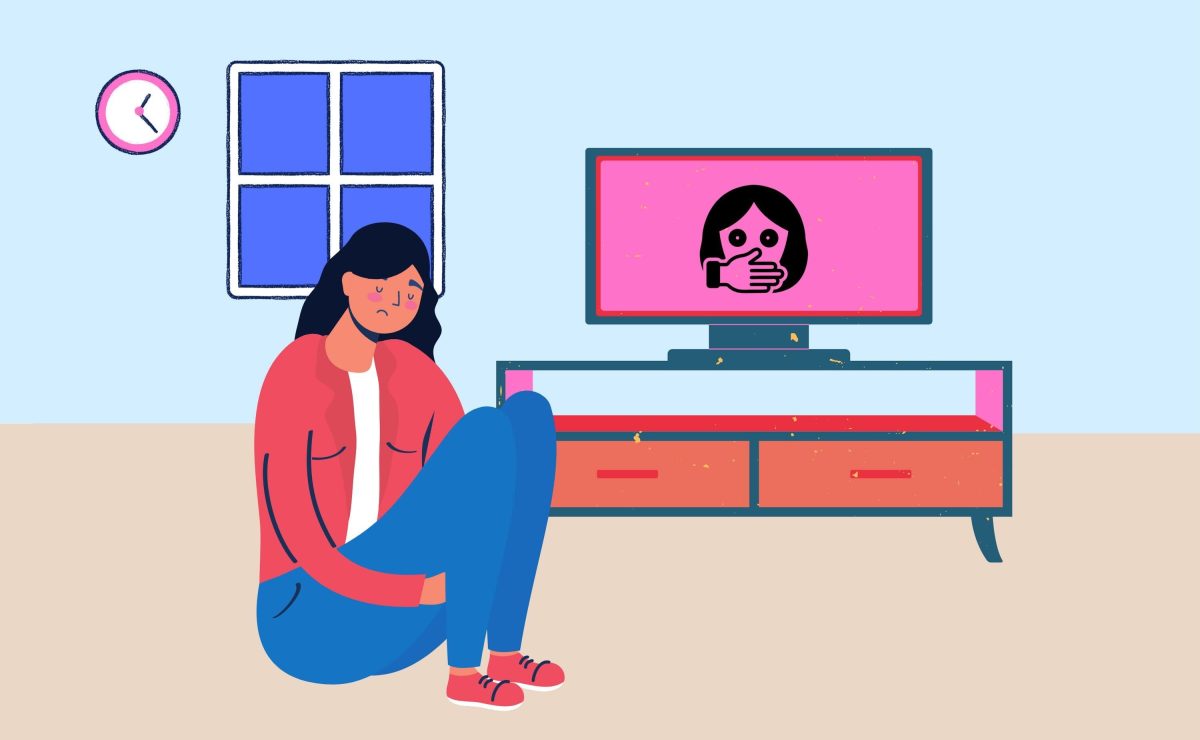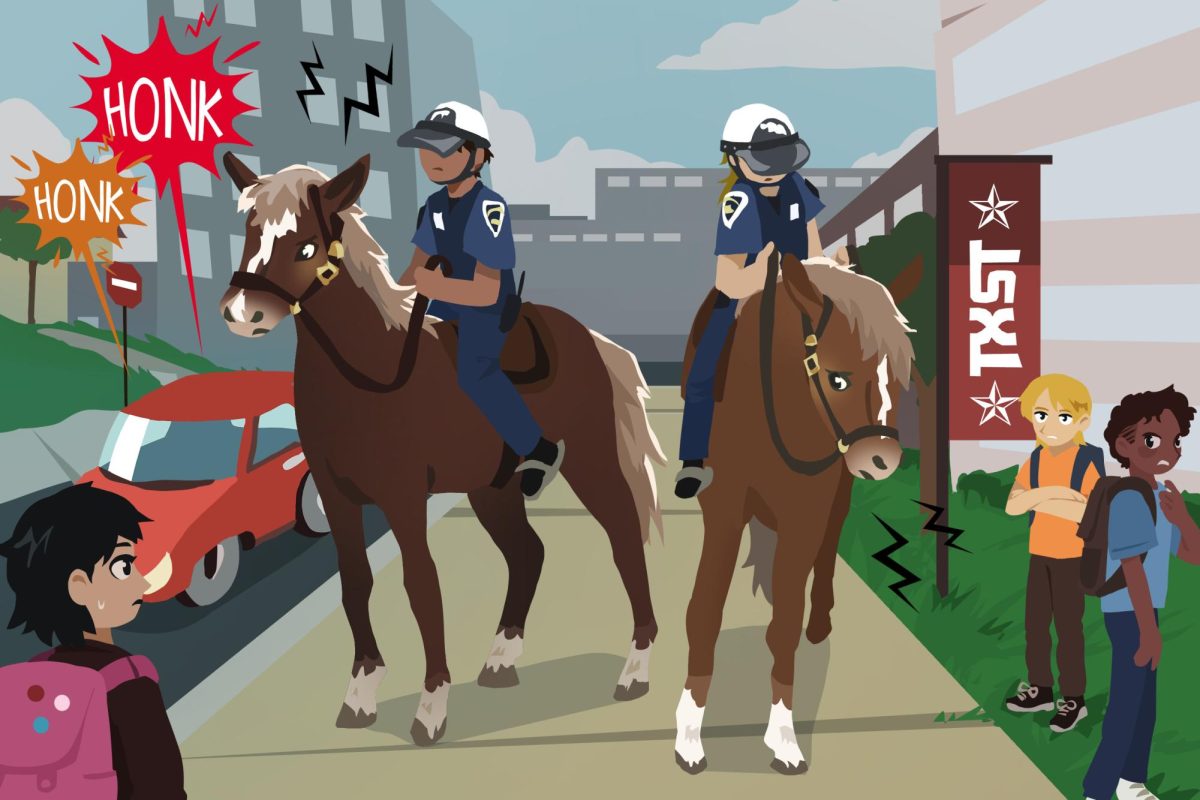Growing up, I feared calling myself a feminist would create discomfort for others.
Noticing the image created in the media, I believed that feminists were associated with negativity. The false portrayal of feminists in the media shaped my false interpretation of those fighting for equality between men and women.
The media has assisted in creating an inaccurate perception of feminism.
The history behind the feminist movement is crucial to understanding the true meaning of feminism today. The first official women’s rights convention was the Seneca Falls Convention in 1848. They created 11 resolutions that discussed the flaws in legislation, such as the inability for women to vote, that made women inferior to men. Both men and women attended the convention. While women would not be granted the right to vote until the 19th Amendment was passed in 1920, the convention marks the beginning of the fight for equality of men and women in the U.S.
When I became older, I noticed that the modern feminist stereotype portrayed in the media was often described as angry. The term “angry feminist” was used to describe women who did not act in the traditional ways that women were expected to act. The journal, ”The Angry Feminist,” explains feminists have been described as “hairy, angry, man-hating, sex-hating women” and states the media used these attributes in order to create a negative outlook on all feminists.
For example, in “The Hunger Games,” there are negative emotions associated with females in positions of power. Katniss Everdeen, the female protagonist, is constantly belittled by others for working against the patriarchy. Rather than being taken seriously, the men in power distort the public’s view by suggesting she is unwelcoming and cruel.
The media’s influence has heavily contributed to a false idea of what it means to be a feminist. Because of this, some women avoid referring to themselves as feminists due to the negative connotation associated with the term.
A study by the Pew Research Center reported in 2020, 61% of women in the U.S. claimed that the term “feminism” was an accurate description of themselves. More women should not be afraid to associate themselves with groups fighting for their rights.
Not only have women felt shamed by the media’s interpretation of feminism, but men have as well. Some parts of the media have insisted that men cannot be feminists. An opinion column from Bright Magazine states feminism is a “lived experience,” that men simply cannot relate to. The columnist argues that men should be feminist allies but should not call themselves one.
However, one’s gender should not determine whether or not one can identify as a feminist or not. Merriam Webster defines feminism as the “belief in and advocacy of the political, economic and social equality of the sexes expressed especially through organized activity on behalf of women’s rights and interests.” Based on this definition, the distinction between men and women is irrelevant.
Rebekah Ross, a professor in the Department of Philosophy, echoes this sentiment and explains that it is important for men to share the values associated with the feminist movement.
“When we define feminism as the theory and practice of confronting gender as a power system, then everyone has the ethical obligation to understand how this oppression operates, how it intersects with other systems, and how to transform it. So, we can and should all be feminists,” said Ross, who teaches an Images of Women class.
In 2016, only 22% of men in the U.S. said that they would consider themselves a feminist. The large portion of men that are hesitant to call themselves feminists is a huge concern. The media should choose to focus on the issues being brought up firsthand, rather than spend their time trying to convince men that it is “unmanly” to be supportive of women’s rights.
“Pirates of the Caribbean: Curse of the Black Pearl” revolves around the idea of strong men saving the “helpless” woman. The movie suggests that women are incapable of helping themselves and men should be the heroes when conflict occurs. The damsel in distress stereotype is a huge issue for the feminist movement as it dismisses the possibility of men and women working together to accomplish goals and promotes the idea that men should always be in positions of power.
Regardless of the media’s flaws, it is important to acknowledge the positive aspects media has done for the feminist movement. Because of the media, feminist voices have been able to reach audiences much more widespread as they can now educate and communicate with people from across the world. This form of media attention has brought social issues to many new audiences.
“I think the media has brought many positive impacts to the movement by creating a space where women can celebrate other women. Breaking down stereotypes and emphasizing body positivity has made a huge impact too,” Lucy Bradshaw, an art freshman, said.
For example, the #MeToo movement focused on empowering women’s voices and encouraged women around the world to speak up about issues regarding gender inequality. It brought up issues involving sexual harassment, unequal representation, power dynamics and gender stereotypes. The media was able to vastly spread the stories of these women and bring attention to the issues at hand.
While the fight for equality between men and women is still ongoing, the media plays a huge part in the feminist movement. It is important to recognize the inaccuracy of feminist stereotypes in the media in order to truly focus on the important issues being brought up by feminists today.
– Kadence Cobb is a journalism freshman
The University Star welcomes Letters to the Editor from its readers. All submissions are reviewed and considered by the Editor-in-Chief and Opinion Editor for publication. Not all letters are guaranteed for publication.
Opinion: Feminism is poorly portrayed in media
March 8, 2022
Donate to The University Star
Your donation will support the student journalists of Texas State University. Your contribution will allow us to purchase equipment and cover our annual website hosting costs.

























